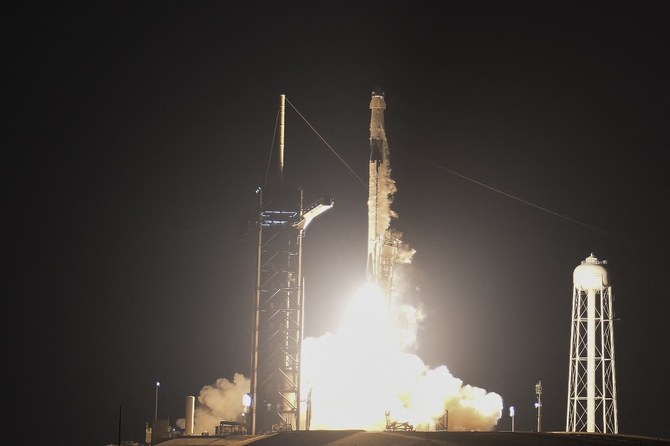
When Joe Biden campaigned for the presidency in 2020, he did so mainly on a domestic agenda. Getting the US economy back on track and tackling the pandemic were top priorities. Currently, US inflation is at 8.5 percent and this week it was announced that 1 million Americans have now died from COVID-19. It is not surprising that Biden’s approval ratings hover around all-time lows.
On the foreign policy front, the White House has done everything possible to avoid major geopolitical confrontations so it can try to remain focused on its domestic agenda. However, as the crisis in Afghanistan last year and the war in Ukraine this year demonstrate, the president of the US must be prepared for any global eventuality.
While Biden was not elected on the basis of his foreign policy agenda, he did campaign very strongly on one foreign policy issue: Reentering a nuclear agreement with Iran.
When Biden entered office in January 2021, he inherited President Donald Trump’s “maximum pressure campaign” against Tehran. The US enjoyed strong trust with its partners and allies across the Middle East. This was most evident with the success of the Abraham Accords. And after a US drone strike killed Qassem Soleimani in January 2020, the Iranians started to tread more carefully throughout the region.
Now, 16 months into the Biden administration, Iran’s aggression across the region remains unchecked. Like the Obama administration did leading up to the Joint Comprehensive Plan of Action, the Biden administration has shown a willingness to turn a blind eye to Iranian activity in the hopes of securing a new nuclear deal with Tehran.
However, the White House faces three major challenges when it comes to securing a new deal, and all stem from a lack of trust.
The first is that Biden is not trusted by US partners in the Middle East. Considering everything that is going on in the region — from Tehran’s nuclear program, the wars in Syria and Yemen, Iran’s cavalier behavior in the Gulf, and Iranian-sponsored drone and ballistic missile strikes against Saudi Arabia and the UAE — it is extraordinary that Biden has yet to visit the Middle East. In fact, he is the first US leader not to have visited the Middle East in their first year of office in two decades.Biden has not only failed to visit the region, but also rarely picks up the phone to call his Israeli and Arab counterparts. Considering the geopolitical stakes are so high in the Middle East, this is a dereliction of duty coming from the Oval Office.
Consequently, regional leaders are wondering if they can trust the White House to help bring stability and security to the region, or if they should be hedging their bets by engaging more with other global powers, such as China and Russia. Any deal that is cooked up between the US and Iran will be immediately viewed with skepticism due to this lack of trust in the White House.
The second hurdle is that Russia cannot be trusted when it comes to the nuclear talks in Vienna. Moscow has played an important role in the process since the beginning. Since the original Joint Comprehensive Plan of Action was negotiated and agreed in 2015, Russia has backed Iran by providing diplomatic top cover for Tehran, both at the UN Security Council and through the P5+1 negotiation framework. In many ways Russia is America’s main interlocutor in the Vienna indirect talks with Iran today. This is where matters get tricky for the US. With relations between Washington and Moscow at an all-time low after the Russian invasion of Ukraine, it is almost inconceivable that the talks, at least in their current format, will continue to take place.
The final challenge is that the US Congress is losing trust in Biden. When Barack Obama agreed to the JCPOA there was significant criticism, by both Democrats and Republicans, in Congress. There was also criticism of the fact that the agreement with Iran was not submitted to the US Senate to be ratified by a treaty in accordance with the US Constitution.
Last week the Senate once again revealed its concerns about ongoing talks with Iran, passing a resolution 86-12 calling on the Biden administration to maintain sanctions on Iran’s central bank no matter what the outcome of the talks in Vienna. The Senate also voted 62-33 to maintain the terrorist designation on the Islamic Revolutionary Guards Corps, the latter vote in response to news reports that the White House was considering removing the IGRC from the terrorist list as a sweetener to jumpstart the stalled talks in Vienna. Both votes passed with bipartisan support, and both were considered snubs to the White House.
The Iranians know that the Biden administration is desperate for a deal. In recent months Iran has continued to fool the White House by suggesting that a new agreement is imminent, without following through with specific plans.
As long as the White House wants a deal with Iran more than Iran wants a deal with the White House, do not expect any progress to be made in the negotiations. The writing is on the wall in Vienna. It is time for Biden to pull the plug on the talks, and restore trust and confidence with Washington’s Arab and Israeli allies and partners in the region.
Luke Coffey is the director of the Douglas and Sarah Allison Center for Foreign Policy at the Heritage Foundation. Twitter: @LukeDCoffey
Disclaimer: Views expressed by writers in this sectiion are their own and do not necessarily reflect Arab News" point of view











